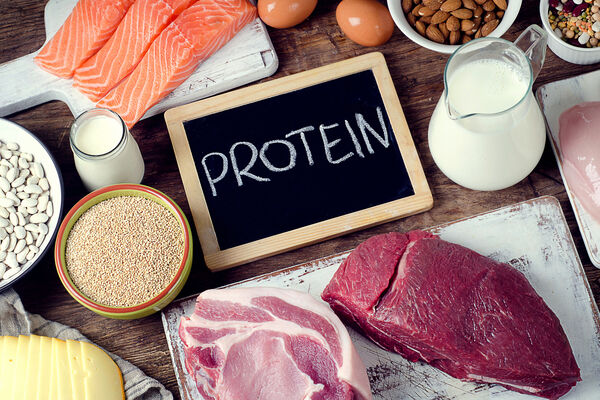As an athlete, you naturally want to get the most out of your workout with the best results. An important question is whether you take your protein before or after your workout. We would like to tell you more and provide insights that can help you make the right choice. Find out what works best for you to reach your fitness goals and get the most out of them. Go For It!
Boost your workout: taking protein before your workout
Taking protein before your workout has its benefits, but they are not significantly large. First, it provides your muscles with important amino acids, which you use to avoid muscle breakdown during your workout. However, you won't find these acids only in protein. Second, taking protein before training is a source of sustained energy. With this you ensure that you can train longer and more intensively. But you can get this energy from plenty of other foods. How long before your workout you take the protein is important, more on this later.
Winner's food: the power of proteins after your workout!
Proteins have an important role to play after your workout. This is because during once intense workout, your muscles experience stress and small tears can form in the muscles. It is therefore essential to provide your body with the right nutrients after your workout. This is to promote the recovery process and growth. Proteins play an important role here. This is because they contribute to the recovery of muscle damage. In addition, it stimulates the production of muscle protein. Moreover, the glycogen stores in your muscles are depleted during a workout. Proteins help to replenish them. By taking protein after your workout, you give your body the nutrients it needs to recover and get stronger.
The best timing for taking your protein
The right time for your protein intake depends on several factors. Personal characteristics are most important here, such as your needs and your goals. Every person is different, but there are some guidelines you can follow. Taking protein before your workout is most effective when done well in advance. About 3-6 hours before your workout. This gives your body enough time to digest and absorb the substances before your workout.
For after training, it is ideal to take a protein-rich meal or shake within 30 minutes to an hour. This is because after a workout, your muscles are more sensitive to absorbing amino acids. These are essential for growth and recovery. It is also good to know that the more intense your training is, the faster your muscles are broken down. Hence the importance of taking your protein shortly after your workout.
The right amount of protein per day
The ideal answer to the question of how much protein you should consume per day? This depends on several factors. Consider your age, gender, weight, how much you exercise and your fitness goals. However, we can generally recommend about 0.8 to 1.2 grams of protein per kilogram of body weight. This means, for example, that someone weighing 70 kg should take about 56 to 84 grams of protein daily. It is important to note that these are general guidelines. Consult a nutritionist or dietician to determine the exact amount of protein for your situation. They will help you put together a customized nutrition plan that suits your needs and goals. The Calorie Calculator from NXT Level gives you an estimation of your daily intakes regarding Proteins, Calories, Fats and Carbs. Fill in your details and get these insights directly!
Basic-Fit understands that you want to get the very best out of your workouts. Choosing whether to take your protein before or after your workout can make a difference in your results. By consuming proteins before your workout, you provide your muscles with the necessary fuel and building materials. Proteins after your workout play an important role in muscle recovery and growth. Remember, it depends on your personal needs and goals.





